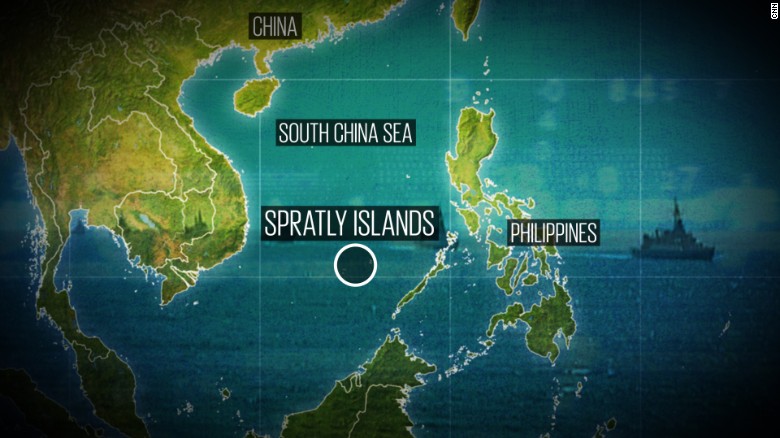The Chinese government on Tuesday took a step the U.S. government has long been calling for when it released a white paper outlining its general military strategy. However, while the Obama administration may be pleased with more transparency from Beijing, it surely wasn’t pleased by the plans the Chinese government outlined, particularly its stated intention to continue development of man-made islands in the South China Sea.
The white paper asserted that the Chinese military “will not attack unless we are attacked, but we will surely counterattack if attacked” and that “China will never seek hegemony or expansion,” according to China Daily.
Related: What’s Pushing Russia and China into Each Other’s Arms
The assurances sound fine, but there is a definitional problem that makes some of the Chinese government’s promises unsatisfying to its neighbors and, indeed to the United States. China’s definition of its sovereign territory – meaning the areas of land and sea that it has the right to defend – doesn’t mesh with most other countries’ understanding of China’s territory.
China has been steadily creating what it claims is new sovereign territory in the middle of the South China Sea by reclaiming land on artificially enlarged reefs and nearly submerged islands. The Chinese military has installed ports and airstrips, and has begun treating them as sovereign territory with regard to air defense and shipping traffic.

This has heightened tensions in a region already worried about China’s increasing global reach. The area in dispute is some 750 miles from the Chinese mainland and far closer to the shores of a number of other countries, including Vietnam, the Philippines, and Brunei. However, as a matter of policy, China claims territorial rights over most of the South China Sea.
An estimated $5 trillion in trade flows through the contested area each year, raising concerns that waters that have until now been freely navigable might be subject to an effort by China to control sea traffic.
Related: China’s $100 Billion Infrastructure bank Has a Bumpy Road Ahead
The United States has been adamantly opposed to China’s continued development of the artificial islands, and in recent weeks has been increasingly aggressive in challenging the Chinese assertion that they constitute sovereign territory whose airspace and territorial waters must be respected. In the past week, the U.S. military flew a spy plane over some of the territory claimed by China, drawing an angry reaction from Beijing.
Tuesday’s white paper release revealed that China intends not only to keep the installations it currently has in the South China Sea, but also to expand them. It plans to build two lighthouses in the region, known as the Spratly Islands.
The paper criticized foreign governments for “meddling” in the affairs of nations in the region, and revealed that the Chinese military intends to take a more assertive role in defending China’s interests in the region. It also clearly states the Chinese military will change its posture in the region from one where the key role is defending Chinese territory to one in which defense is balanced with the capability to act offensively.
Related: West Coast Port Dispute Is Over, but the Damage from It Isn’t
The United States and China’s neighbors in the South China Sea – particularly the Philippines – have utterly refused to recognized that the reclaimed islands, which are claimed by multiple countries, as sovereign territory.
A spokesman for the Chinese Defense Ministry on Tuesday said that the matter was beyond dispute, claiming that the construction of airstrips and other facilities was no different than building homes on the Chinese mainland. That, of course, begs the question of whether the Spratlys are Chinese territory in the first place.
As tensions in the region continue to build, an editorial in a state-run Chinese newspaper on Monday warned that unless the United States changes it position, conflict between the two countries could be inevitable.
Top Reads from The Fiscal Times:




